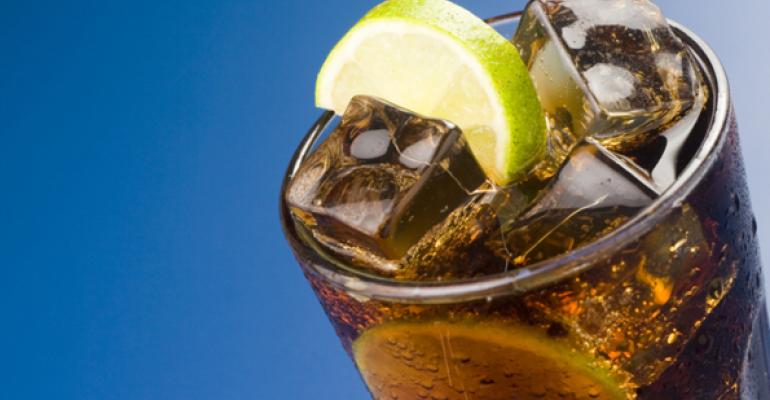Just one day before New York City was set to ban the sale of large sodas and sugary beverages at restaurants and other venues throughout the five boroughs, a state judge overturned the new regulations, calling them “arbitrary and capricious.”
Beginning Tuesday, March 12, the ban, which had been championed by Mayor Michael Bloomberg, would have restricted restaurants, sports venues, movie theaters, street carts and delis from selling soda and other sugary beverages in cups or containers larger than 16 ounces. Retail food and convenience stores, which fall under the jurisdiction of the state of New York, would not have been regulated under the city ban.
The National Restaurant Association and other groups and individuals had challenged the regulations in a lawsuit filed in October in New York State Supreme Court in Manhattan. The lawsuit sought to block city officials from implementing the ban, claiming the city’s Board of Health had overstepped its authority when it passed the ban in September.
RELATED
• New York soda ban challenged in court
• Passage of New York soda ban disappoints restaurant industry leaders
• More restaurant industry government news
In his ruling, New York State Supreme Court Judge Milton Tingling wrote that the city is “enjoined and permanently restrained from implementing or enforcing” the new regulations. He ruled the ban was “fraught with arbitrary and capricious consequences. The simple reading of the rule leads to … uneven enforcement even within a particular city block, much less the city as a whole.”
New York officials defined sugary drinks as beverages sweetened with sugar or another caloric sweetener that contain more than 25 calories per eight fluid ounces and contain less than 51 percent milk or milk substitute by volume as an ingredient. The ban did not apply to diet drinks, calorie-free drinks and alcoholic beverages.
Tingling stated that the ban “excludes other beverages that have significantly higher concentrations of sugar sweeteners and/or calories on suspect grounds, and the loopholes inherent in the rule, including but not limited to limitations on re-fills, defeat and/or serve to gut the purpose of the rule.”
The city had said it would begin fining sellers by as much as $200 for violating the ban beginning in mid-June.
“This is a great victory, particularly for thousands of restaurant operators and industry suppliers serving New York City who would have experienced financial hardships had the ban been enacted,” said Dawn Sweeney, president and chief executive of the NRA. “We are extremely pleased that the judge recognized that the Board of Health exceeded its authority when it initially passed the ban.”
Sweeney added, “We look forward to working with public health officials to engage in a constructive dialogue that will have a positive and sustained impact on the people of New York City.”
Judith Thorman, senior vice president of Government Relations & Public Policy for the IFA, said in a statement, “We applaud the court’s decision to prevent Mayor Bloomberg’s unnecessary and ineffective proposal from being enacted and enforced. The proposal was an example of government overreach that unfairly targeted restaurant franchises and would have done little to combat obesity, while placing excessive and arbitrary costs on franchisees throughout New York City.”
The National Consumers League, a Washington, D.C.-based consumer advocacy group, expressed disappointment in the judge’s ruling. “With alarmingly high obesity rates, particularly amongst our children, it is important that leaders take decisive steps to protect public health,” said Sally Greenberg, NCL’s executive director. Sodas and other sugar sweetened beverages are a large part of the problem and their overconsumption needs to be addressed.”
Bloomberg had introduced the proposal last May, citing the city’s obesity and health problems as his reason for wanting to limit the size of sugary beverages.
“In New York City nearly 60 percent of adults and nearly 40 percent of children are overweight or obese, and there are real-world consequences,” Bloomberg had said earlier. “People’s lives will be shorter, their quality of life is going to be dramatically reduced, and obesity is going to start killing more people in this country than smoking.”
This article has been revised to reflect the following correction:
Correction: March 11, 2013 An earlier version of this article incorrectly stated that the International Franchise Association was a plaintiff in a lawsuit challenging the ban.
Contact Paul Frumkin at [email protected].
Follow him on Twitter: @NRNPaul

